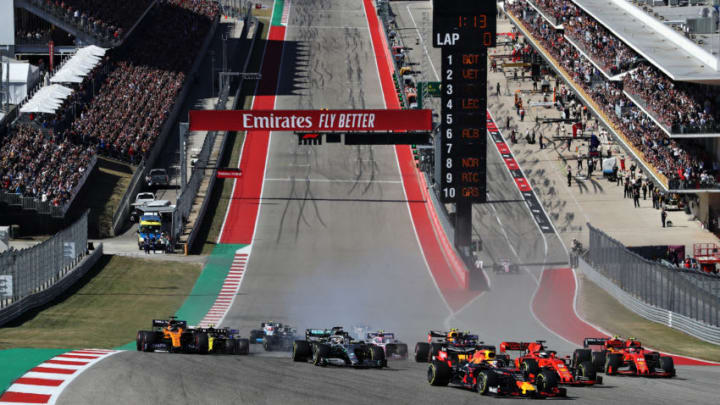Formula 1: Driver salaries could skyrocket due to key cap exemption
By Asher Fair

Due to a key exemption from the budget cap, the 2021 Formula 1 season could see numerous driver changes brought about by bidding wars and skyrocketing salaries.
Among the major rule and regulation changes that are set to be implemented ahead of the 2021 Formula 1 season is a budget cap, a cap that will restrict teams from spending more than $175 million.
Of the 10 teams currently competing in Formula 1, six teams spend more than $175 million, and of these six teams, three spend more than twice $175 million.
But there are several exemptions from this $175 million budget cap; in fact, Forbes estimates that these exemptions will be worth about $1.8 billion. This amount itself is slightly higher than what is effectively a $1.75 billion budget cap for the entire field.
The most notable exemption to this cap? Driver salaries.
More from Formula One
- Formula 1: Top Red Bull threat identified for 2024
- Formula 1: Why the Max Verstappen retirement obsession?
- Formula 1: Williams ‘mistake’ hints Logan Sargeant’s future
- Formula 1 awaiting key confirmation for 2024 season
- Formula 1: The ‘championship’ Max Verstappen only leads by 3 points
Considering the fact that teams like Mercedes, Ferrari and Red Bull Racing, which currently spend $484 million, $463 million and $445 million, respectively, will be subject to this $175 million budget cap, they are going to have an abundance of extra cash to spend on the exemptions, most notably drivers.
This has caused several team officials to voice their disapproval, even among the teams that are already spending well over what the budget cap is slated to be.
Here is what Red Bull Racing team manager Helmut Marko had to say, according to Autoweek.
"“When the cars get more alike, the drivers will be the most important factor again. Drivers like (Lewis) Hamilton, (Max) Verstappen and (Charles) Leclerc will benefit. If they disagree, they can blackmail the teams and it can quickly cost you $50 million. It was a mistake to not put the driver salaries into the budget cap.”"
McLaren CEO Zak Brown concurred; McLaren currently rank fifth in budget at $269 million.
"“It was a mistake to take the drivers out. Along with the car, they are a factor that determines the lap time. If they were part of the budget, the teams would have to decide to invest their money in the driver or the car. That’s the point of a budget cap. The prize is for the one who uses their money the most sensibly.”"
Right now, Mercedes’ Lewis Hamilton is the highest paid driver in Formula 1 with a salary of $57,000,000. But he and Ferrari’s Sebastian Vettel ($45,000,000) are the only two drivers in the sport who make more than $17,000,000 per year.
With driver salaries being exempt from the budget cap, what’s to stop a team such as Mercedes, Ferrari, Red Bull Racing or McLaren from offering $60,000,000 per year to a promising young driver such as Max Verstappen, Charles Leclerc or Lando Norris?
Then what’s to stop one of the other teams from upping that offer to $62,000,000? Then to $65,000,000? Then to $68,000,000? Then to $70,000,000?
Next. Top 10 Formula 1 drivers of all-time. dark
$60,000,000-$70,000,000 may or may not be range we end up looking at. But you get the idea; this has the potential to set up huge bidding wars for the sport’s hottest free agents — and there are slated to be a lot of them ahead of the 2021 Formula 1 season — and it also has the potential to keep the current top teams toward the top, even if by a lesser amount due to the other changes to the rules and cars that are set to be implemented.